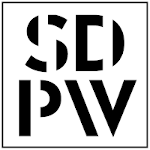Wykaz obszarów badawczych związanych z tagiem Cytotoksycznosc:
| # | Obszar badawczy | Dziedzina naukowa |
|---|---|---|
| 1 |
The current research interests focus on miniaturized analytical systems (Lab-on-a-Chip) for monitoring of bioanalytes. Emphasis is now also being laid on the development of polymeric chips for human cell culture (Cell-on-a-Chip) in unique, in vivo-mimicking microenvironment where studies of cellular growth and responses to external factors are conducted for drug screening and toxicology applications. The use of new tools and research conducted on multicellular spheroids (cancer tumor model) will help to broaden existing knowledge of biology, biochemistry and cellular engineering. Developed Cell-on-a-chip microsystems are useful bioanalytical tools platforms used to develop an individual therapeutic plan (drug selection, dose and frequency of administration) for the treatment of i.a. cancers. Such a device allows you to perform tests on cells taken from the patient and can be used in personalized medicine based on theranostic approach, where it is important to give the appropriate drug, at the optimal dose, to the right person at the right time.
|
|
| 2 |
The main research interests are focused on the design and fabrication of bioanalytical microsystems (Lab-on-a-Chip flow-through microsystems). These microsystems are intended for the development of new analytical and bioanalytical procedures such as: conducting analytical reactions at the microscale, optical and electrochemical detection of analytical signal, microdissection, etc. Another area of scientific interest is cell culture in hybrid microsystems. Two- and three-dimensional cultures in different configurations conducted in microscale are used to assess cyto- , photo- , magneto- , and thermotoxicity of newly synthesized compounds and materials (two-dimensional materials, nanomaterials, new drugs with potential anticancer activity) and to evaluate the effectiveness of new procedures in anticancer therapies. His research interests also include the development of innovative drug delivery systems to cancer cells based on nanocarriers (nanocapsules, polymer micelles, magnetoliposomes).
|
|
| 3 |
My research focuses on determining the anticancer potential of various active compounds. In particular, the research is concerned with determining the cytotoxicity of potential drugs against various cancer and normal lines, determining the type of cell death (apoptosis, autophagy) and activation of selected signaling pathways in the cell. Most of the ongoing research involves inhibitors of protein kinases CK2 and PIM and their use in leukemia and breast cancer therapy. Ongoing research also includes determining synergistic interactions of selected protein kinase inhibitors together with classical cytostatics. Recent research includes the use of human exosomes to improve the efficacy of selected CK2 inhibitors on cancer cells. Methods he specializes in include MTT assay (determination of IC50 values, combination indices (CI), dose reduction index (DRI)), flow cytometry methods, immunodetection (western blot), immunofluorescence (fluorescence, confocal microscopy).
|
